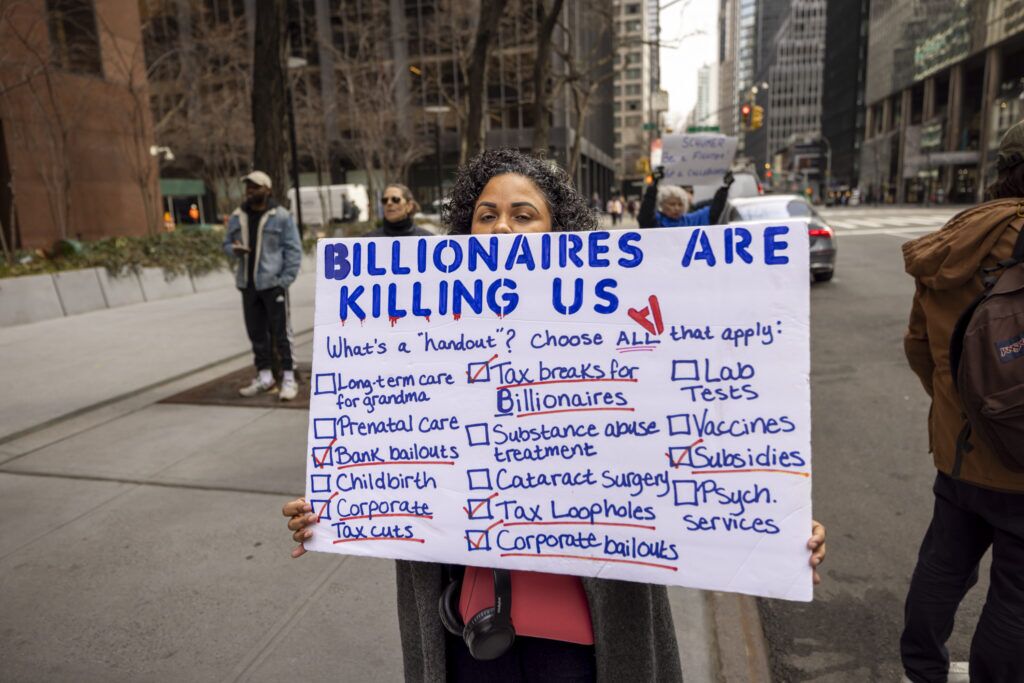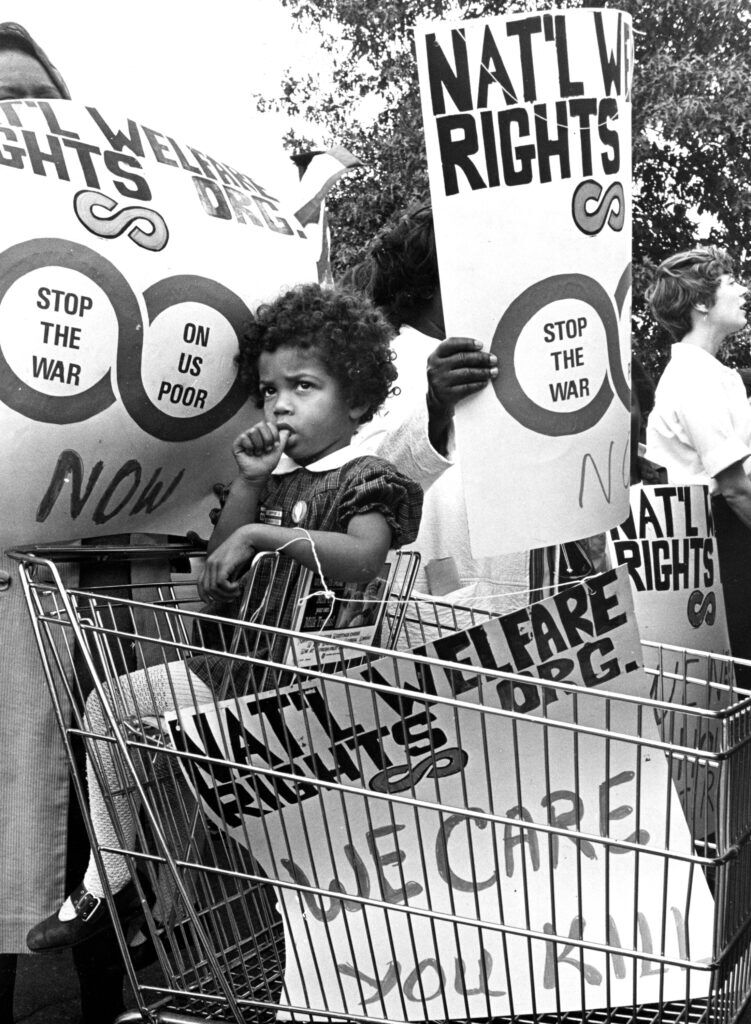Women's Rights & Issues
Related: About this forumPoverty is a Policy Choice--and Women Deserve More
(definitely worth a read or listen)
Poverty is a Policy Choice—and Women Deserve More
PUBLISHED 8/1/2025 by Carmen Rios
In the third episode of Looking Back, Moving Forward, economists and advocates break down how our economy is leaving women behind and lay out strategies for advancing a feminist economic future.

In the wake of Trump’s so-called “Big, Beautiful Bill” being rammed through Congress, experts in the latest episode of “Looking Back, Moving Forward” weighed in on the longstanding policy failures that have pushed women into poverty and diminished women’s work. (Photo by Michael Nigro/Pacific Press/LightRocket via Getty Images)
“When you see the injustices that there are in low-income communities and people-of-color communities and [for] women in general,” legendary labor organizer and feminist leader Dolores Huerta told me in the latest episode of Looking Back, Moving Forward, “then you realize that this is not right, and that we should do something to change it. This is what has perpetuated me into this lifelong struggle.” “We’re not done yet, Huerta added. “There’s still a lot more work to do.”
The third episode of Looking Back, Moving Forward—a Ms. Studios podcast tracing the intertwined histories of the magazine and the larger feminist movement—explores the transformations in women’s economic lives Ms. has chronicled in the last 50-plus years, and where we go from here in the fight for economic justice. I spoke to Huerta and other economists, advocates, and movement-builders for this episode—collecting their visions for a feminist economic future and exploring, in our conversations, the myriad gaps in our current economic system.
. . . .
In the wake of the so-called “Big, Beautiful, Bill” being rammed through Congress by the President and his henchmen in Congress—enacting policies that experts warned will initiate the largest transfer of wealth from the poor to the rich in history—the conversations I had with experts for this episode of “Looking Back, Moving Forward” shed light on the longstanding policy failures that have pushed women disproportionately into poverty and led to the widespread diminishment of women’s paid and unpaid labor. “Poverty is the result of systems that have been intentionally put in place that the majority of us benefit from,” Aisha Nyandoro, founding CEO of Springboard to Opportunities, home to the Magnolia Mother’s Trust guaranteed income program, told me. “That’s why poverty exists. Individuals are not poor simply because they are not working hard enough, simply because they are not educated enough, simply because they are not doing whatever the things are we tell ourselves individuals are not doing.

Poverty is a systemic failing, not an individual failing.”
A child sits in a shopping cart amid a National Welfare Rights Organization protest in Boston on Oct. 14, 1969. NWRO founder Johnnie Tillmon wrote in the first issue of Ms. that “welfare is a women’s issue“—connecting the dots between racism, sexism, and class warfare in the U.S. (Sam Masotta/The Boston Globe via Getty Images)
Gaylynn Burroughs saw those systems at play when she was an attorney at the Bronx Defenders, representing poor women of color whose children were in the child welfare system simply because they couldn’t make ends meet. “We could’ve just provided the food,” she said. “We could’ve just helped people get medical care. Why don’t we just provide the support people need? Why do we have to traumatize these families?” Now the Vice President of Education and Workplace Equality at the National Women’s Law Center, Burroughs is leading strategic work to build a better economy. “There is this trend that we have seen that women are just more likely to live in poverty and to experience hardship,” she asserted. “It’s not like this is inevitable. The fact that women are disproportionately more likely to live in poverty is a choice that we have made as a society.”
. . . . .
https://msmagazine.com/2025/08/01/gender-poverty-policy-feminist-economics-history/